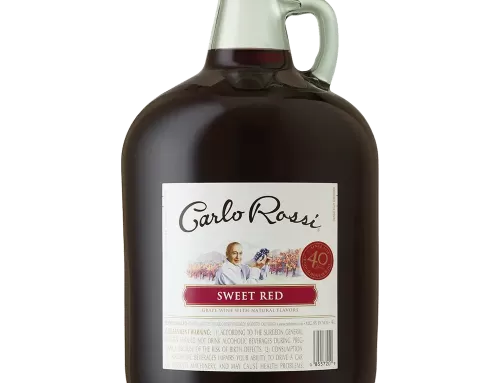
These are not just my own musings. You are unlikely to find a critic who does not have at least some misgivings about rating wine. It is, by its nature, very reductive, even with review text attached. We all know and appreciate that it is difficult to put something as complex as wine into that tight of a box.
Still, the reality is that, in the Pacific Northwest alone, there are many thousands of wines released each year. This makes it difficult to impossible for consumers, particularly ones who are newer to a region or a producer, to decide which ones to focus on.
This is where critics can bring value. They can highlight varieties, producers, and regions that a consumer might otherwise be less likely to notice or explore.
Are ratings the be all end all? No. That is something I believe we can all agree on.
Ratings are intended as a reflection of the critic’s perception of quality based on his or her experience and expertise with a region and its wines. See ‘How I Sample Wines’ and ‘Interpreting Scores’ for additional information.
To the extent the critic has a high level of experience with a region and reviewing wine and takes an objective approach, their scores and tasting notes offer the possibility of providing a helpful guide. To the extent the critic is inexperienced with a region and/or reviewing or takes a non-objective approach, it is likely to have questionable value.
While I work as hard as I can to control as many variables as possible when tasting wines for review, wine rating is still more art than science. It’s more subjective relative to a particular critic’s palate than a Platonic ideal that every critic will agree upon.
However, this is not to say that it’s all entirely subjective either. It is not. We should all agree that a cork tainted wine (a wine contaminated by trichloroanisole) is faulted. Similarly, we are all likely to agree that, after a certain point which will vary by individual, volatile acidity is a fault in most wines as well.
Ideally, all things being equal, a group of critics who have experience with a region and take a similar approach to reviewing will converge (relatively) with their scores. That is not to say we will agree on the specifics necessarily. We do have individual palates. But hopefully we will agree which is a quality wine and which is less so.
However, in reality there can be wide variation given the different manners in which critics review wines: blind versus not; a controlled setting versus not. (See additional thoughts on this here.) This, along with palate differences, can lead to substantial disparities in scores. This can be confusing for consumers and wineries alike.
Does that mean that critics’ scores have no meaning? No. But it does mean that some critics’ scores might have less meaning than others. Not all wine scores are equal, even though they are often treated as such.
Ultimately, it is for the consumer to educate themselves about the reviewer’s experience with a region, how a reviewer tastes wine, whether they agree with that approach, and whether a particular critic’s palate aligns with their own or not. To the extent it does – or at least aligns on certain types of wines – the consumer can use the ratings to steer them toward wines they are likely to find enjoyable and away from wines they are not. (I for one believe both positive and less positive scores have equal value to consumers.)
That can provide significant value. To the extent a particular critic’s palate does not align with an individual, then that critic offers them little value.
For example, back in the days of ‘Siskel & Ebert,’ I used to agree with Gene Siskel on certain types of movies. But others, I knew we were unlikely to agree on. So I paid close attention to how he described a movie to decide whether or not I should go see it. These descriptions are the equivalent to a wine’s tasting notes.
Consumers should look for critics whose palate aligns with their own, which is very unlikely to be every critic. For wineries and retailers, it’s different.
Wineries and retailers are using scores to promote and try and sell wines. However, when they reference wine scores, they are also giving their imprimatur not just to that score but to the reviewer as well. They are saying that they believe both have merit – and not just because they happen to find the score helpful for sales.
To the extent wineries and retailers promote scores and reviewers that they don’t believe in, over time consumers will come to see that the praise being given does not match their own perception. The winery’s or retailer’s reputation will suffer, as it should.
At the end of the day, if enough consumers feel a critic provides value to them, the critic will influence wine choices and wine sales. If too few consumers feel that a critic provides value or is reputable, then they will not. The cream rises to the top, again, as it should.
This is all to say, I am the critic. But you all are the arbiters of whether my scores and reviews provide value to you. My goal and hope is always that they do. That said, I understand that for some they might, and for others they might not.







Michael Broadbent's The Vintage Wine Book is an example of the kind of wine reviews that are useful. The book is pretty out of date now but the wine descriptions were short, to the point and given a simple star rating. As Sean said in his article, the important point is to judge your own taste against the critic. If you consistently agree with the writer's comments on wine you have tasted then it more likely you will agree on a wine you haven't tasted. A critic's comments are worthless if when you taste the wine, you think, "did we taste the same wine?" It's your opinion that counts, you are drinking the wine. So it pointless to buy a "100" point wine based on a critic you consistently disagree with. Lastly, you should never assume a critic is the arbiter of good taste! It's what you like that counts.
I agree completely with Doug Fletcher.
A good roadmap to understanding the nuances behind rating wines.